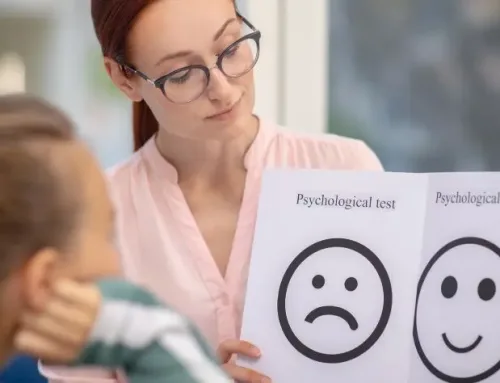How Long Does It Take to Become a Clinical Psychologist? Career Path Timeline

How long does it take to become a clinical psychologist? It’s one of the first questions future psychologists ask—and it’s a smart one. Becoming licensed in this field takes time, dedication, and planning. But for those drawn to working deeply with people, guiding healing, and shaping mental health care, the journey is well worth it.
From early education to advanced clinical training, each stage plays a key role in your development. The timeline can vary, and the path has multiple milestones. So, what can you expect—and how do you navigate it with clarity and purpose?
How Long Does It Take to Become a Clinical Psychologist? Career Path Timeline
What Is a Clinical Psychologist?
A clinical psychologist is a licensed mental health professional trained to assess, diagnose, and treat behavioral, cognitive, emotional, and psychological issues. Their work combines scientific understanding with compassionate care, often helping individuals manage conditions like anxiety, depression, trauma, and personality disorders. Clinical psychologists also support clients of all ages through life transitions, relationship struggles, and stress-related concerns. The foundation of their work is evidence-based psychotherapy, psychological assessment, and treatment planning.
While many mental health professionals offer counseling or support services, clinical psychologists receive advanced doctoral-level training. They are uniquely qualified to perform psychological testing and lead complex treatment for individuals across the lifespan. This deeper clinical and diagnostic skillset allows them to work with more severe or multifaceted cases.
Clinical psychologists work in a wide range of settings, including:
- Hospitals and medical centers
- Private practice clinics
- University counseling centers
- Community mental health agencies
- Schools and academic research settings
They may also specialize in areas like child and adolescent therapy, neuropsychology, trauma recovery, health psychology, or couples and family therapy. Whether they work one-on-one or as part of an interdisciplinary team, clinical psychologists play a key role in today’s healthcare system.
Complete Timeline to Become a Clinical Psychologist
Becoming a clinical psychologist is a step-by-step journey that blends academic knowledge, clinical training, and real-world experience. It’s a structured path that builds your skill set gradually—from foundational coursework to advanced clinical expertise. Here’s how each phase typically unfolds, and what to expect along the way.
Phase 1: Bachelor’s Degree (4 Years)
Your path begins with a bachelor’s degree in psychology or a related field. This is where you’ll build the academic foundation for future training, including courses in human development, abnormal psychology, research methods, and statistics.
To make the most of this stage:
- Take prerequisite courses required by graduate programs
- Keep your GPA strong, especially in major-specific classes
- Gain research experience through faculty labs
- Volunteer or intern in mental health or counseling settings
Timeline: Years 1–4 of education
Phase 2: Master’s Degree (2 Years) – Optional but Advantageous
While not always required, earning a master’s degree can strengthen your application to doctoral programs. Many students pursue an MA, MS, MEd, or MSW to gain clinical exposure, deepen their academic skills, and clarify their career goals.
Master’s programs offer coursework in human development, counseling theory, psychopathology, diagnosis, ethics, and cultural competence. They may also include supervised practicum experiences, which count toward future licensure in some cases. For those who already hold a relevant master’s, this phase can streamline doctoral training.
Timeline: Years 5–6 of education (optional)
Phase 3: Doctoral Program – SCUHS Accelerated Pathway (3.3 Years)
This is where advanced clinical professionals expand their impact. At Southern California University of Health Sciences (SCU), our Doctor of Psychology (PsyD) in Psychodynamic Psychology program is designed for experienced practitioners ready to take their work to the next level. Our 3.3-year accelerated format delivers rigorous, real-world learning focused on advanced clinical concepts, systems thinking, and applied scholarship—preparing you to lead, teach, supervise, and drive change in the field.
Traditional PsyD programs often take at least 4 to 5 years. PhD programs, which are research-intensive, can take 5 to 7 years or more. SCU’s program is structured to move you through coursework,clinical skill training, and your doctoral project efficiently, without sacrificing depth or quality. The program blends interactive blended format learning with in-person residencies, rooted in SCU’s holistic health philosophy.
Timeline:
- 9–11 years total, including undergraduate and graduate education
- 4–6 years within the PsyD program itself, depending on prior qualifications and enrollment pace
Phase 4: Postdoctoral Training (1–2 Years)
After earning your doctorate, many states require postdoctoral supervised experience before licensure. This stage involves working under a licensed psychologist in a clinical setting, continuing to build depth in assessment, therapy, and case management.
Some use this time to specialize in areas like neuropsychology, child and adolescent care, or integrated health. Postdoctoral work can also fulfill additional hour requirements for licensure that had not not been completed during your doctoral program.
Timeline: Years 10–14 of total education/training
Phase 5: Licensure Process (6 Months – 1 Year)
Once your education and supervised hours are complete, the final step is licensure. This includes passing the Examination for Professional Practice in Psychology (EPPP), completing state-specific jurisprudence or ethics exams, submitting background checks, and finalizing application paperwork.
Each state has its own licensing board, so requirements may vary slightly—but the core process is similar across the U.S. After licensure, you’re officially cleared for independent clinical practice and can call yourself a clinical psychologist.
Timeline: Year 10.5–15 of your professional journey
This timeline may feel extensive, but each phase is designed to develop your skills and confidence in delivering quality care.
Factors That Affect Timeline Length
While the path to becoming a clinical psychologist follows a general structure, the timeline isn’t one-size-fits-all. The pace can shift depending on the type of program you choose, your personal circumstances, and a few logistical variables. Understanding these factors early can help you plan smarter and stay on track toward your goals.
Program Type and Structure
The kind of doctoral program you enroll in plays a big role in how long your journey takes. At SCU, we offer a 3.3-year accelerated Doctor of Psychology in Psychodynamic Psychology (PsyD) program that gets students into their doctoral career sooner—without cutting corners on training or quality. SCU’s blended format gives working professionals added flexibility, making it easier to manage life while progressing through rigorous online and in-person coursework.
Traditional PsyD programs typically run 4 to 5 years, offering practice-oriented training at a slower pace. PhD programs often stretch to 5 to 7 years, with a heavier focus on original research and academic output.
Individual Student Factors
Your personal academic background and life experience can influence how quickly you move through the process. Students entering with a relevant master’s degree may find that they meet some prerequisites early on, giving them a head start. The nature and scope of your doctoral project—or dissertation, in the case of PhD programs—can also affect how long it takes to complete your degree.
Licensing timelines vary, too. Some state boards move faster than others when it comes to reviewing applications, processing supervision hours, and issuing exam approvals.
External Circumstances
Life outside of school matters and can impact your pace. Family responsibilities, full-time work, or financial obligations may shape how much time you can commit to your studies at any given point. The cost of tuition, the availability of scholarships or aid, and the need for part-time employment all play a role.
Geographic flexibility can also affect training timelines. Some students may need to travel to practicum or internship sites, while others benefit from strong local partnerships. Support systems—both personal and institutional—can make a major difference in staying on track and finishing strong.
Ways to Accelerate Your Clinical Psychology Career
Whether you’re already practicing in the field or transitioning from a related discipline, there are smart ways to deepen your impact and move your career forward.
Strategic Undergraduate Preparation
Laying a strong foundation in your undergraduate years can make a big difference later on. Choosing the right courses, gaining early experience, and staying organized with your graduate school prep will help you build momentum.
Ways to strengthen your foundation:
- Build on your existing credentials. Leverage your master’s degree, licensure, and clinical experience to pursue advanced roles in leadership, education, or supervision.
- Choose programs that value your professional background. Look for doctoral paths that don’t require redundant clinical hours if you’re already experienced in the field.
- Invest in advanced training with real-world application. Prioritize education that connects directly to your current work—through systems thinking, applied research, and leadership development.
- Expand your influence beyond the therapy room. Consider roles in administration, advocacy, education, or consultation to broaden your impact across communities and organizations.
These steps don’t just prepare you academically but help you stand out when it’s time to apply.
Efficient Doctoral Program Navigation
Once you are in a doctoral program, how you engage can have an impact on your pace and success. Seek out programs with high internship match rates and strong clinical placement partnerships. Start planning your doctoral project early so you will not scrambling at the end. Focus on quality supervision and practical experience throughout your practicum and internship work.
Networking plays a key role. Connect with mentors, peers, and professionals in the field. Those relationships can open doors, offer support, and keep you inspired during the most demanding parts of training.
Alternative Pathway Considerations
Choosing a program designed for efficiency can accelerate your journey significantly. PsyD programs are ideal for students who want to go straight into clinical work, without the extended research requirements of a PhD.
Our accelerated 3.3-year PsyD program offers the flexibility and convenience of a blended format. It’s structured for working professionals, especially those balancing work or family responsibilities, who are determined to reach their career goals fast. Combined degree options and the ability to transfer applicable graduate credits can also help reduce your overall timeline.
If you’re looking to fast-track your future in clinical psychology, apply now or request more information to see how SCUHS can support your goals.
Why Choose a PsyD Program for Faster Clinical Practice
If your goal is to become a practicing clinical psychologist as efficiently as possible—without compromising depth or hands-on training—a PsyD program offers a direct, focused path. These programs are designed for those who want to be in the field, work with clients, expand clinical expertise, and create a meaningful impact sooner. With the right program structure, faculty support, and clinical training opportunities, you can move from the classroom into practice with confidence.
SCUHS PsyD Program: Industry-Leading Timeline
At SCU, our Doctor in Psychology (PsyD) program is designed with a clear mission: prepare students for impactful clinical work through innovative delivery, clinical application, and whole-person care principles. Designed with both working professionals and emerging clinicians in mind, our program offers a flexible, high-quality educational experience rooted in excellence.
Key program highlights include:
- Curriculum led by Dr. Jens Schmidt, a leader in psychodynamic therapy and clinical education
- Blended online and in-person format that allows working professionals to study efficiently and flexibly without missing out on relational learning from instructors and peers
- Intensive clinical application starting early in the program
- A holistic approach that integrates psychodynamic, neuropsychology, trauma-informed and multicultural modalities
This model empowers students to grow into confident, competent psychologists—ready to meet the needs of today’s mental health landscape while staying grounded in SCU’s whole-person care philosophy.
Clinical Training Excellence
From your first year, you will gain hands-on experience through our scholar-practitioner teaching and learning approach. All members of the faculty are practicing clinicians in the mental health field while being experienced in higher education.
We also provide extensive support for internship matching, one of the most important milestones in a PsyD journey. Clinical consultation and mentorship is consistent and accessible throughout the program, giving students the guidance needed to grow confidently into clinical roles.
Post-Graduation Licensure Support
Graduating is just the beginning. SCU is committed to supporting you through the licensing process, with guidance tailored to your state’s specific requirements. We also offer ongoing professional development, alumni networking, and career placement assistance to help you move into your first role successfully.
Many graduates continue receiving consultation support after entering the field, helping them navigate early clinical challenges with confidence and clarity.
State-by-State Licensing Requirements
Licensing requirements for clinical psychologists vary by state, so it’s important to plan with your destination in mind. Most states—including California (3,000)—require between 1,500 and 4,000 supervised hours, often completed through a combination of practicum, internship, and postdoctoral training.
Beyond the EPPP (Examination for Professional Practice in Psychology), some states require additional exams, such as ethics or jurisprudence. Reciprocity between states can ease license transfer, but it’s not guaranteed. SCU faculty and staff provide state-specific guidance throughout your program, so you are always prepared for the next step—wherever your career takes you.
Ready to Start Your Clinical Psychology Journey? Plan Your Timeline Today!
Your path to becoming a clinical psychologist starts with a clear plan—and we are here to help you build it. At SCU, our admissions counselors are ready to guide you through program options, timeline planning, and available support. From financial aid to scholarship opportunities, we’ll help you understand what’s possible and how to get there.
Email us at admissions@scuhs.edu to connect with a counselor.
Explore financial support here and here, then apply now or request more information to take your first step.
Frequently Asked Questions
What is the shortest time to become a clinical psychologist?
The fastest path to becoming a licensed clinical psychologist is through entering a 5-year doctoral program in psychology after the 4-year bachelor’s program; after the doctoral program the graduate will still have at least one year of postdoctorally to accrue hours of supervised experience to sit for licensure. However, for those who have obtained a master’s degree, SCU’s accelerated PsyD program offers a fast track, to complete the doctoral degree in 3.3 years postmaster, while traditional routes take at least 4 to 5 years. Similar to those in 5-year programs, the graduates will need at least 1 additional year after graduation where they accrue hours of supervised experience to sit for licensure.
Can you become a clinical psychologist faster with a PsyD program?
Yes. Our PsyD takes 3.3 years, while most traditional PsyD programs require at least 4 to 5 years and PhD programs tend to require at least 5 years. SCUHS’s blended format saves time overall but also through an efficient scheduling of independent preparation, online study, and intense weekend residential class work
Do you need a master’s degree to become a clinical psychologist?
You may not need a master’s degree to become a clinical psychologist, if you complete a 5-year PsyD or PhD program that prepares for licensure. However, many students obtained a master’s first to later discover that they would benefit from more in-depth education, knowledge, and a higher degree. For these individuals, SCU’s post-master’s accelerated PsyD program offers a time-efficient pathway to a doctoral degree, while still supporting those who wish to pursue licensure in psychology.
How long is the internship for clinical psychology?
Most students complete a one-year, full-time predoctoral internship during their final year in school as the internship is a requirement for their degree completion and graduation. The match process begins nearly a year in advance. After the internship, supervised postdoctoral hours (a fellowship) of at least another year may be required to sit for licensure, depending on the state.
SCU’s PsyD program does not require a predoctoral practicum or internship as most students enter with a license for clinical practice from a related field. Those who intend to pursue licensure in psychology, can also seek out an internship at the beginning of year 3 and then continue with completing their clinical hours postdoctorally to sit for licensure, depending on the state.
What happens if you don’t match for an internship?
If you don’t match for an internship placement, SCU can provide support for reapplying, exploring alternative placements, or adjusting your timeline..
How long does licensing take after graduation?
At a minimum, graduates who have obtained their doctoral degree, will need a year to complete 1,500 hours of supervised verified experience which will require at least 1 year of work. Licensing processes then can take 6 to 12 months, depending on the state. It includes submitting documentation, completing supervised hours, scheduling and passing exams like the EPPP. Delays often come from processing times or exam availability, so early preparation helps.
Related Posts




